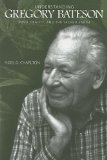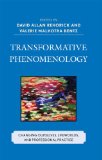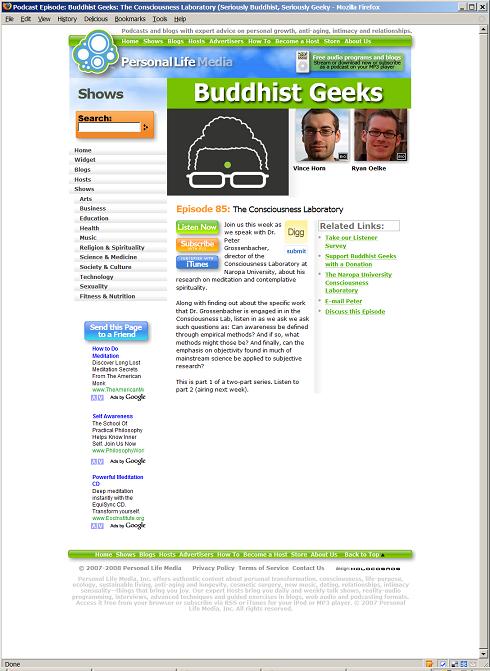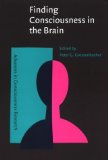November 8, 2008
“Self awareness and Obama,” a recent blog post at The Frontal Cortex, mentions the notion of “self-overhearing” (aka metacognition), citing Philip Tetlock of UC Berkeley. I looked for more information about self-overhearing, which comes from Tetlock’s Expert Political Judgment: How Good Is It? How Can We Know? 
Paul Monk in “Foxes, Hedgehogs, and Algorithms” discusses Tetlock’s book and traces “self-overhearing” back to Harold Bloom’s Shakespeare: The Invention of the Human.

Monk provides this quote from Tetlock as a further guide to what he means by ‘self-overhearing’ (which may not be the same idea as Bloom intended):
“Good judgment, then, is a precarious balancing act…Executing this balancing act requires cognitive skills of a high order: the capacity to monitor our own thought processes and to strike a reflective equilibrium faithful to our conceptions of the norms of intellectual fair play. We need to cultivate the art of self-overhearing, to learn how to eavesdrop on the mental conversations we have with ourselves as we struggle to strike the right balance between preserving our existing worldview and rethinking core assumptions. This is no easy art to master. If we listen carefully to ourselves, we will often not like what we hear. And we will often be tempted to laugh off the exercise as introspective navel-gazing, as an infinite regress of homunculi spying on each other…all the way down.”
Comments (0)
- consciousness,self
November 1, 2008
Usually on Saturday there is a good new video at Bloggingheads and this time it is an Eliezer Yudkowsky and Jaron Lanier “diavlog” on artificial intelligence:
Comments (0)
- consciousness
September 13, 2008
“Everything is connected” at the Guardian gives a nice summary of Gregory Bateson’s thought, especially on the relationship between art and politics (though “everything is connected”).

Here’s an excerpt:
His thinking contained a kind of catch-22: the conscious mind, his own included, was of its nature incapable of grasping the vast system of which it was only a very small and far from representative part; hence any major intervention to “solve” a given problem would always be ill-informed and inadvisable. The only possible solution would be a radical change in our way of thinking, or even our way of knowing, a new (or ancient) mindset in which conscious purpose would be viewed as only a minor and rather suspect part of mental life.
Dreams, religious experience, art, love – these were the phenomena that still had power, Bateson thought, to undermine the rash/rational purposeful mind. Of these four, art enjoyed the special role of fusing different “levels of mind” together: there was necessarily consciousness and purpose in the decision to create, but creativity itself involved openness to material from the unconscious, otherwise the work would be merely schematic and transparent.
Gregory Bateson at Wikipedia
Gregory Bateson – books at Amazon

Steps to an Ecology of Mind
Comments (0)
- consciousness,culture
September 2, 2008

Transformative Phenomenology: Changing Ourselves, Lifeworlds, and Professional Practice edited by David Allan Rehorick and Valerie Malhotra Bentz (Lexington Books, 2008) … and it has gotten some good reviews too.
Product Description
The fourteen authors in this collection used phenomenology (the study of consciousness) and hermeneutics (the interpretation of meaning) to conduct deep inquiry into perplexing and wondrous events in their work and personal lives. These seasoned scholar-practitioners gained remarkable insight into areas such as health care and illness, organ donation, intercultural communications, high-performance teams, artistic production, jazz improvisation, and the integration of Tai Chi into education. All authors were transformed by phenomenology’s expanded ways of seeing and being.
I also found the table of contents:
Coming to phenomenology : saying why and showing how — Transformative phenomenology : a scholarly scaffold for practitioners / Valerie Malhotra Bentz and David Rehorick — Male experiences of pregnancy : bridging phenomenological and empirical insights / David Allan Rehorick and Linda Nugent — Experiencing phenomenology as mindful transformation : an autobiographical account / Sandra K. Simpson — Lessons from illness and personal trauma : pathways to individual change — Trial by fire : the transformational journey of an adult male cancer survivor / Dudley O. Tower — My body the traitor : fearing a recurrence of breast cancer / Roanne Thomas-MacLean — Take my kidney please : an organ donor’s experience / Jeffrey L. Nonemaker — Empowerment in workworlds : self-other transformations in corporate environments — The lifeworld of high performance teams : an experiential account / Lucy Dinwiddie — Personal power : realizing self in doing and being / Bernie Novokowsky — Bodymindfulness and energetic presence in intercultural communication / Adair Linn Nagata — Experiencing transcendence : personal transformation as collaborative accomplishment — Finding voice and reclaiming identity : embodied wisdom in the lived experience of Norteñas de nuevo méjico / Gloria L. Córdova — A breath of fresh air : phenomenological sociology and Tai Chi / Marc J. LaFountain — Intentionality in action : teaching artists phenomenology / David B. Haddad — Chasing transcendence : experiencing magic moments in jazz improvisation / Steven C. Jeddeloh
The publisher’s webpage also links to a sample chapter.
Comments (19)
- consciousness,new books
August 27, 2008

Dr. Peter Grossenbacher, from the Consciousness Laboratory at Naropa University, visits the Buddhist Geeks in the first of a two-part series of podcasts.

Dr. Grossenbacher is the editor of Finding Consciousness in the Brain: A Neurocognitive Approach (John Benjamins Co., 2001) (“Look Inside” the book available from Amazon).
Comments (0)
- consciousness,meditation









